Filter by
Most Recent
- Most Recent
- Most popular

All time
- All time
- This Month
- This Year

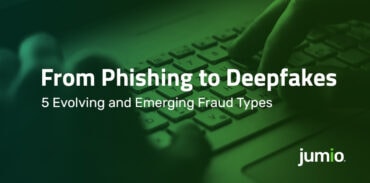
From Phishing to Deepfakes: Understanding the Evolving Landscape of Online Fraud
“Are you who you say you are?” This seemingly simple question, once reserved for the philosophical musings of great thinkers, has now found its way into the uncharted territories of the digital landscape. It’s no longer the scholars debating identity — it’s the online businesses desperate to discern the truth amidst the ever-looming threat of…

KYC: What “Know Your Customer” Means and Why It’s Important
Know Your Customer (KYC) refers to the process institutions use to verify the identities of their customers and ascertain what fraud risks they may pose. The premise is that knowing your customers — performing identity verification, reviewing their financial activities, and assessing their risk factors — can keep money laundering, terrorism financing and other types…

Fighting AI with AI: What Businesses Need to Know about Generative AI and Fraud
Generative artificial intelligence (AI) has caused a massive leap forward in technology. Tasks such as researching and writing reports as well as creating images can now be done in seconds instead of days or months. But while these automation tools can lead to vastly improved efficiencies for businesses, it is also ushering in a new…

What is Enhanced Due Diligence (EDD)?
In today’s business and regulatory climate, a business should not only be concerned with making profits — it should also attempt to know who it has business dealings with. This means identifying and verifying customers’ identities and meeting Know Your Customer (KYC) and Anti-Money Laundering (AML) guidelines. When a financial institution creates a new business…
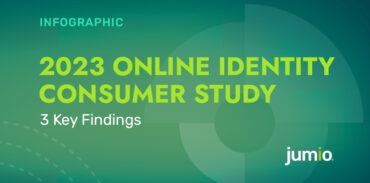
3 Key Findings from Jumio’s 2023 Online Identity Consumer Study [Infographic]
Generative AI has captured the imagination of millions worldwide, largely driven by the recent success of ChatGPT, the text-generation chatbot. While there are many potential benefits when it comes to this technology, in the wrong hands it also serves as a powerful weapon for taking cybercrime to a whole new level through the creation of…
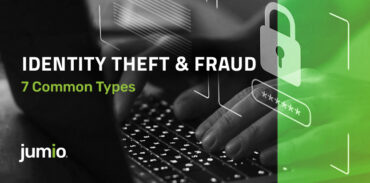
7 Most Common Types of Identity Theft and Fraud
The ability to conduct financial transactions online and share personal data provides huge benefits in terms of speed and availability of services that might not be possible otherwise. But this convenience can also come at a cost. Various types of identity theft and fraud are growing every year, thanks to data breaches and the ever-evolving…

AML Regulatory Compliance — Trends, Technology and Threats for Online Gaming Operators
The online gaming industry has witnessed massive growth in recent years and shows no sign of abating – the sector is projected to grow to USD 153.6 billion globally by 2030. Unfortunately, the increase in activity has been accompanied by increased risk of exploitation by financial criminals and increased scrutiny from regulators. More than ever…
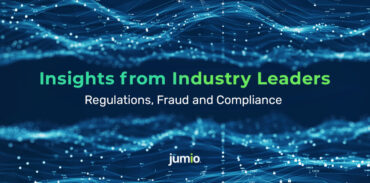
Navigating Regulatory Trends, Rising Fraud Threats and Compliance: Insights from Industry Leaders
As more and more people shift toward a digital lifestyle, it has become increasingly apparent that digital payments are the future of financial transactions. More than 6 billion people across the globe use digital payment options on a regular basis. The convenience, speed, and security that digital payments offer are unparalleled, making it the most…
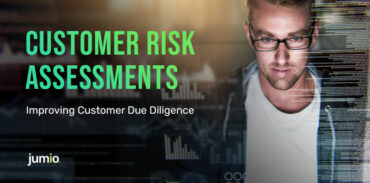
How Financial Institutions Can Use Customer Risk Assessments to Improve Customer Due Diligence
Financial institutions play a critical role in safeguarding the financial system from criminal activity, such as money laundering and terrorism financing. To do so, they must implement effective risk management strategies, which include customer due diligence (CDD) processes. One key component of CDD is conducting customer risk assessments, which allow financial institutions to assign a…
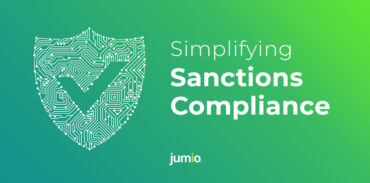
Turning Toasters into Tanks: Why Sanctions Compliance is Challenging But Essential
When you think of sanctions, household items might be the last thing that comes to mind. But even a simple toaster can have military uses, causing regulators to rethink requirements for sanctions compliance. Sanctions compliance refers to the steps businesses must take to ensure they do not trade or have financial relations with those who…

Complying with AML and KYC Regulations in the U.S. and UK
Global anti-money laundering (AML) and Know Your Customer (KYC) regulations are becoming increasingly rigorous, especially in the U.S. and the UK. Financial institutions that are obliged to contend with both evolving regulatory and risk landscapes must ensure their anti-financial crime programs are in step with shifting AML and KYC requirements. Pressed even further due to…
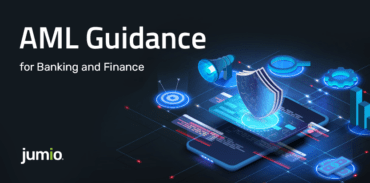
Guidance on Anti-Money Laundering (AML) in Banking and Finance for 2023
Anti-money laundering (AML) policies are put in place to deter criminals from integrating illicit funds into the financial system. Money laundering schemes are used to conceal the source and possession of money obtained through illegal activities, such as drug trafficking and terrorism. Banks and other financial institutions are legally obligated to follow AML regulations to…

